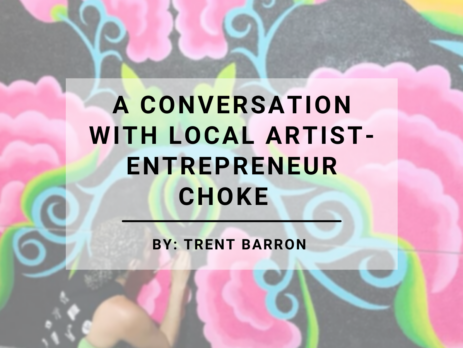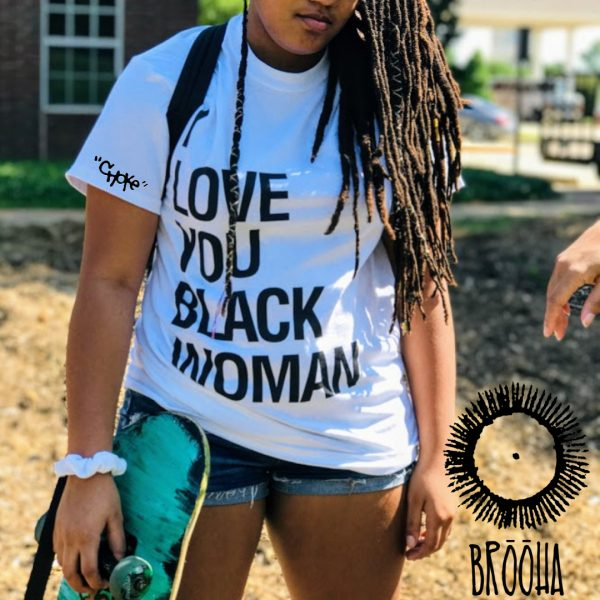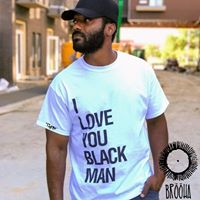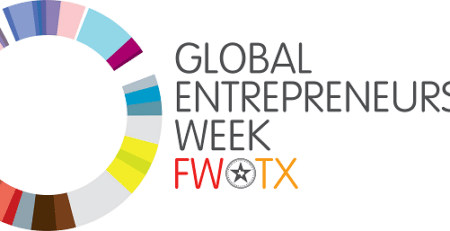Part 2: Social Justice
This conservation is the second of a two part series with the Fort Worth-based artist CHoKe. Check out Part 1 here.
In our last conversation, CHoKe talked about her humble beginnings, from selling candy and customized clothes to her classmates, to hustling on the streets of Washington, DC and Baltimore selling her art, to moving around the country pursuing her passion. We also discussed her journey and lessons learned as an entrepreneur and how she has balanced managing her business while still producing content, along with her drive and tenacity for her craft. Today we’re focusing on social justice issues and how CHoKe uses her platform and influence to help create positive change in the community.
You’ve got a new line of t-shirts out that are now available. What can you tell us about them?
I have a very specific message and I’ve always had this very specific message and it never really occurred to me to put that on a shirt until we did. And we need this now more than ever. This is a message we need to make sure our community is seeing because it is really hard to be a black man, woman and child in America or around the world.
Expand a little more on that. What is the message you’re trying to send?
We need to know that we’re loved. And we need to make sure that our family members, members of the black community, are able to see that we love them even from afar, especially because we’re doing a lot of social distancing and we can’t interact face to face or say hi on the street or hug, but at least my shirt lets you know that I love you. So my husband and I started this “I love you black man, woman and child” campaign, not just because of this, but because it’s beyond time that we make sure that our black and brown family members know that they’re loved. All of this violence and racial tension and injustice, that is exactly why we need our folks to know that we love them in case someone doesn’t come home, but maybe you happened to see our shirt, you know that we love you. And I know that it’s a struggle out there and I know it’s hard for all of us out there, but we need everybody to know that we love them. We need them to know.
How have you brought your passion and tenacity and standing up for what is right to the social justice movement?
My husband and I started a book club a while back, and it’s grown to over 600 people now, but we read relevant books that talk a lot about these types of issues, and so I feel like we’ve been ahead of the curve. We’ve already been on this for so long, and I feel like it amplified for me when I moved here to Fort Worth, because the racism down here is unlike anything I’ve ever seen. It is way more blatant. It’s just more prevalent. You can feel it when you come down here, the things people say and the way people act. But at the same time, there’s this beautiful community of people that are extremely supportive. I’m so proud to live in the Fairmount neighborhood. I’m on the board of directors in our Neighborhood Association Group, and also part of the Arts Council and it’s awesome to see so many people supporting this movement. On the other hand though, I think it’s definitely magnified here because there’s so much that Texas needs to learn. There’s so much that Texas needs to work through in order to really embrace everyone.
Where do you think this passion for social justice and letting your voice be heard came from?
Growing up in DC, our teachers used to tell us to go down to the National Mall and protest. That was definitely one of the things that I remember when I went to Duke Ellington School of the Arts. I went there on scholarship for one year. Some of the teachers there would say, ‘you get extra credit if you leave and go to the protest’ and sometimes they would take us. Sometimes they’d be like, ‘Screw it. Let’s take off of school and go out to the National Mall and protest.’ You know, my parents would take us out or take me out when I was little too, to go march for things that mattered. So I think that that’s just part of my genetics in a way, is to just get out there because that’s how I was raised. I am these people and that’s how I grew up. For me because I grew up in that, I think that my natural desire is to care for people in my own shop where I’m supporting different tribe members and things like that. The people out in the streets are my tribe members. So I need to make sure that they’re okay. I received so many donations of food and water and snacks and Gatorade, and first aid and PPE materials for people to stay safe, and I’ll take all that down there and pass it out to people in the streets.
That is amazing work that you’re doing. I think it’s so important for our community and especially the leaders within our community, like yourself, to stand up and speak out.
Yes, absolutely. And you know, some of it isn’t even a black thing. It’s a police thing and it’s a society thing and it’s a government thing because they really need to listen to the people. There’s a lot of white people that are supporting this because they also agree this whole situation is messed up. I think a lot of it is a police issue, that’s why we talk about defunding the police. That doesn’t mean to dismantle the police. That means reallocating funds to different social programs so the police aren’t doing all the work. I would love to see libraries and after school programs get more funding. We don’t need to be militarizing our police departments in such a way that it’s scary for people. Police are not the end all be all. They are given so many roles that they aren’t sufficiently trained for. So in six months, you mean to tell me that when you graduate from the Police Academy, you are now a domestic abuse counselor, you’re a marriage counselor, you’re a paramedic? How many roles do they have? They couldn’t have possibly learned all of that in six months. And on top of all of that, they’re given a gun. So we need to talk about reallocating funds and properly training police to respond in a proper manner. Honestly, I lament the ‘Defund the Police’ slogan because I think it sends the wrong message to the people who are already scared of Black Lives Matter, since they think we’re welcoming chaos or something. ‘Defund the Police’ is catchy, but it’s misleading. It should be about reallocating funds, not getting rid of police departments.
How have all the protests regarding racial injustice affected your business?
I’ve definitely seen business pickup with my website now that there’s a lot of focus on black owned businesses, which is fine, but in one regard I don’t want that to stop or start only because we’re a black owned business. This should just be a regular thing: you supporting everyone because it’s local, you’re supporting me because my stuff is dope. They’re supporting us because they genuinely want to support it.
Where do you see change happening?
I see that in regards to Fort Worth and this area, I can see that there’s a lot more opportunity for small businesses to grow. I see there’s a lot of highlighting the inequalities in so many things that we’re seeing. I mean, just across the board, we’re seeing what we need to improve and it’s because it’s being highlighted in such a way. I’m specifically seeing a lot of the racial and inequality training and inclusive training going on in a lot of major corporations. You’re seeing so many changes and I know that’s hard for some people. We’re finally starting to be heard and starting to shine and starting to get some kind of recognition, and some people can’t handle it. Unfortunately I think a lot of people are scared and they shouldn’t be. If you think about it, any logical person would say, ‘Don’t you realize that if your black and brown communities are doing well and thriving, that you will do just as well? If everyone is doing well and thriving, won’t we all be happy?’ I’m certainly glad the BLM movement has put black businesses at the forefront, but don’t let it be a trend. This should not just be because it’s right now. This should always be what you’re doing- being inclusive and showing diversity, not because it looks good, but because it’s the right and fair thing to do. This should be a regular practice, to put black, brown, white, Asian, Hispanic, every kind of business at the forefront, being supported.
___________________________________________________________________________________________________
To shop CHoKe’s products, go to www.broohamarket.com. 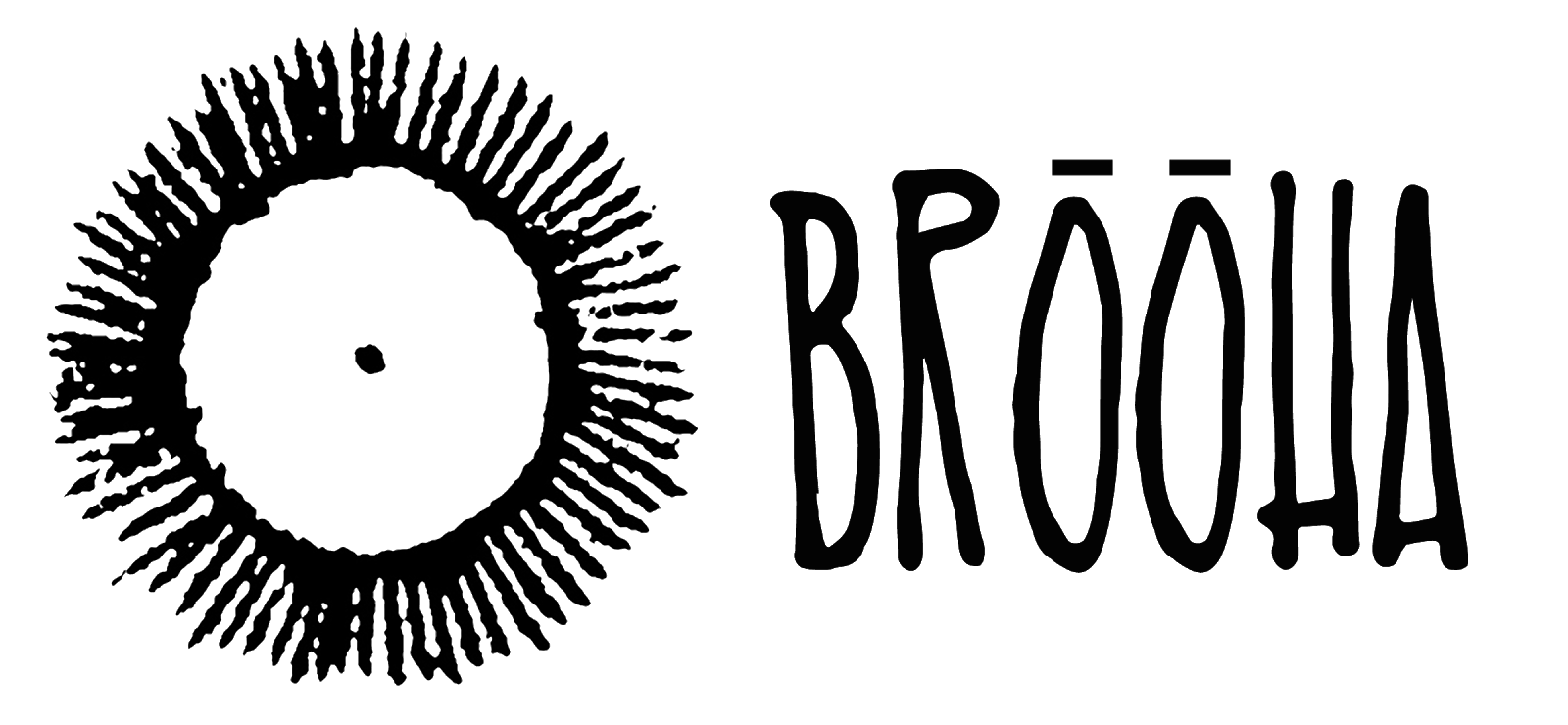
Be sure to check back in with Sparkyard as we continue to highlight, support, and connect with entrepreneurs and innovators, to amplify the voices that need to be heard within our community.
__________________________________________________________________________________________________
This conversation was held between CHoKe and Marco Johnson and transcribed by Trent Barron.

